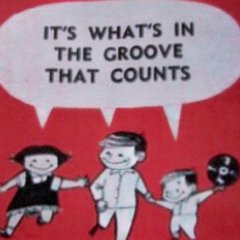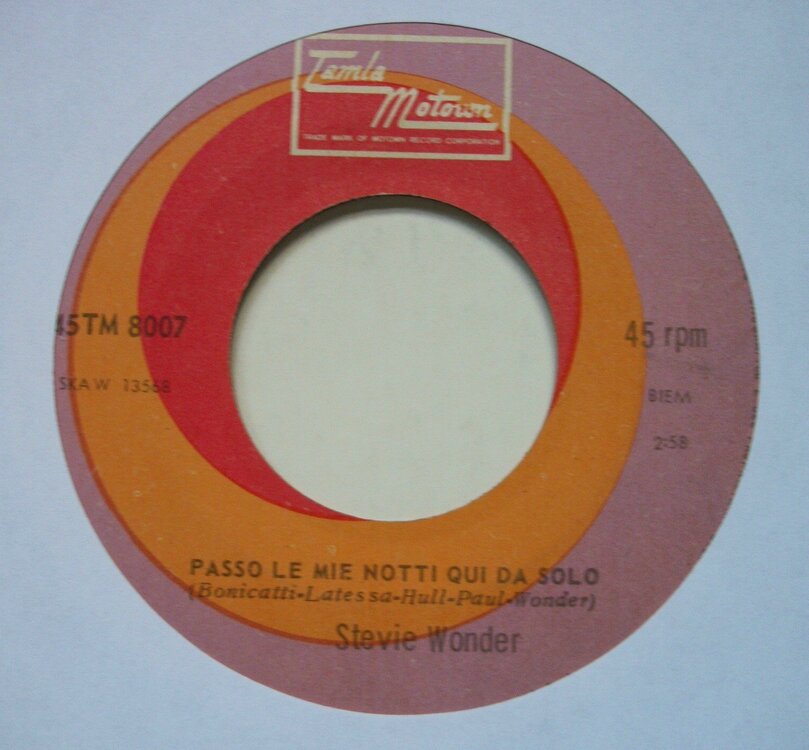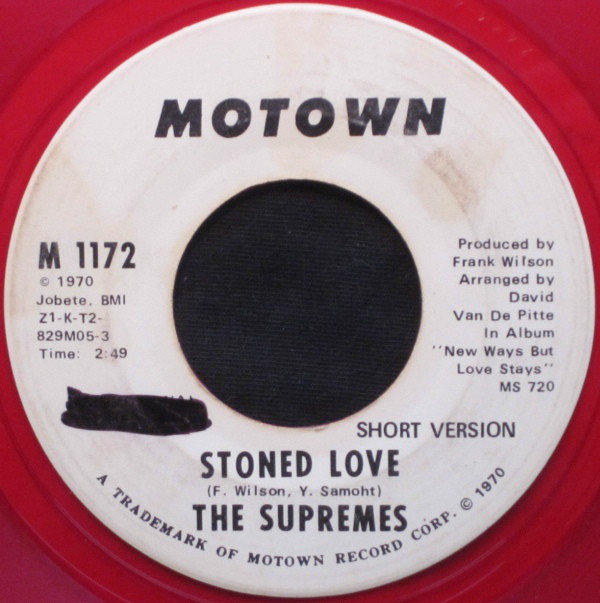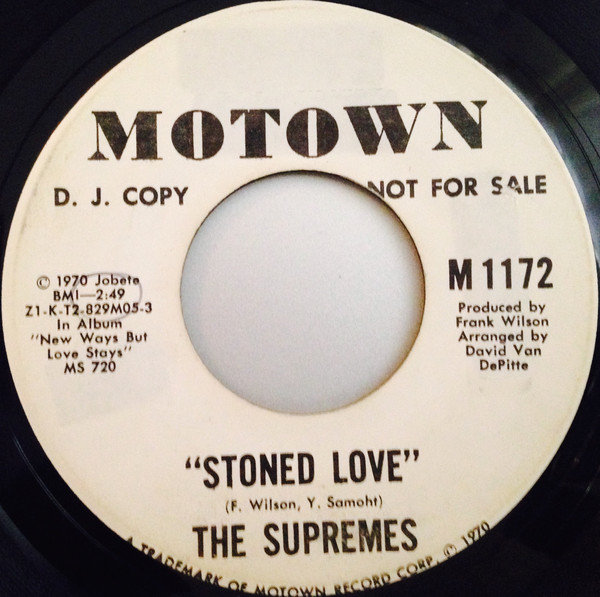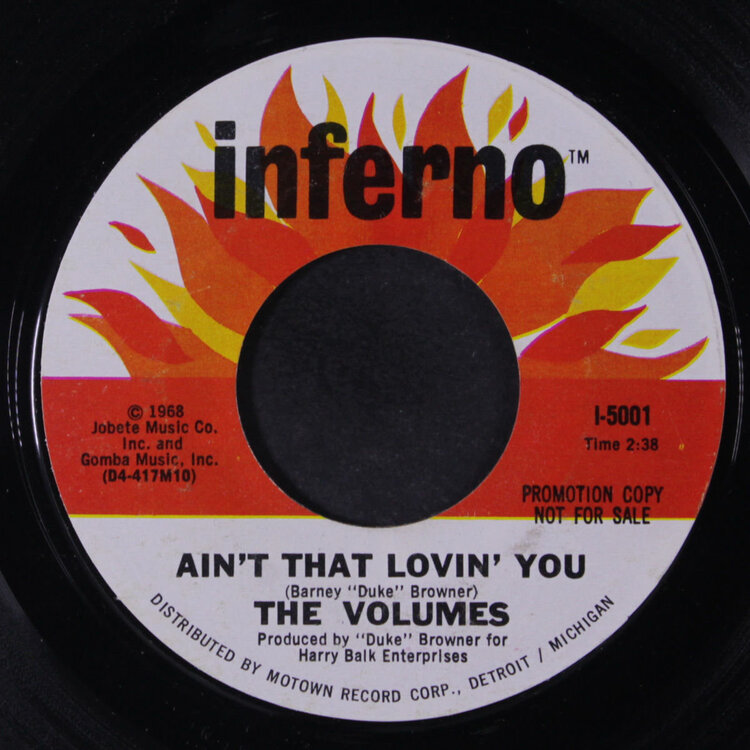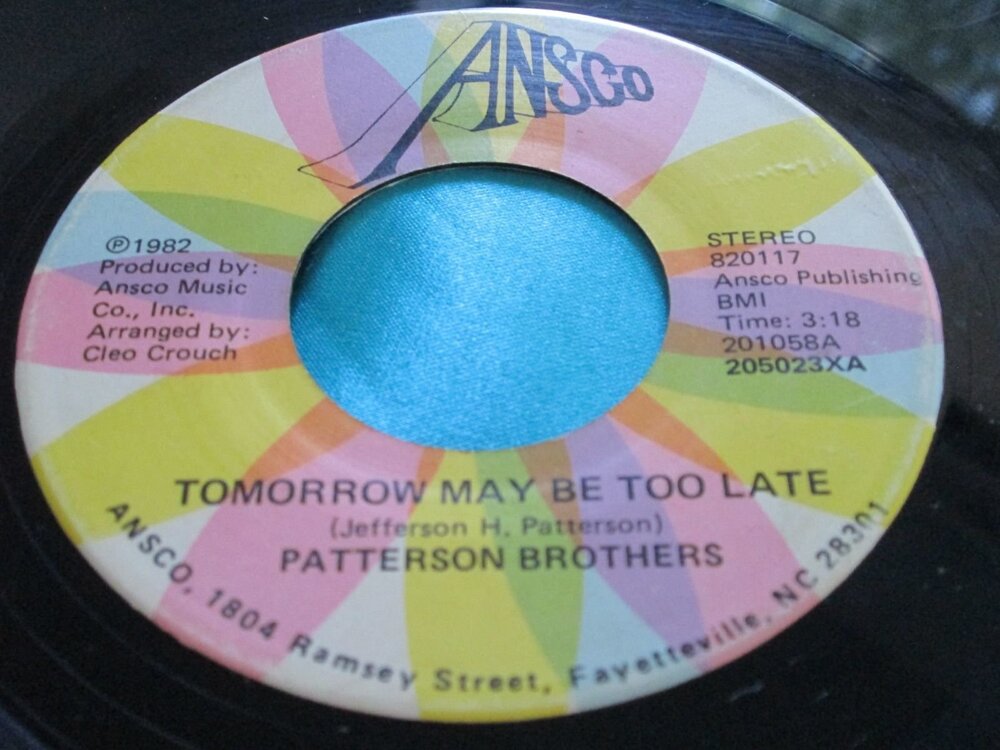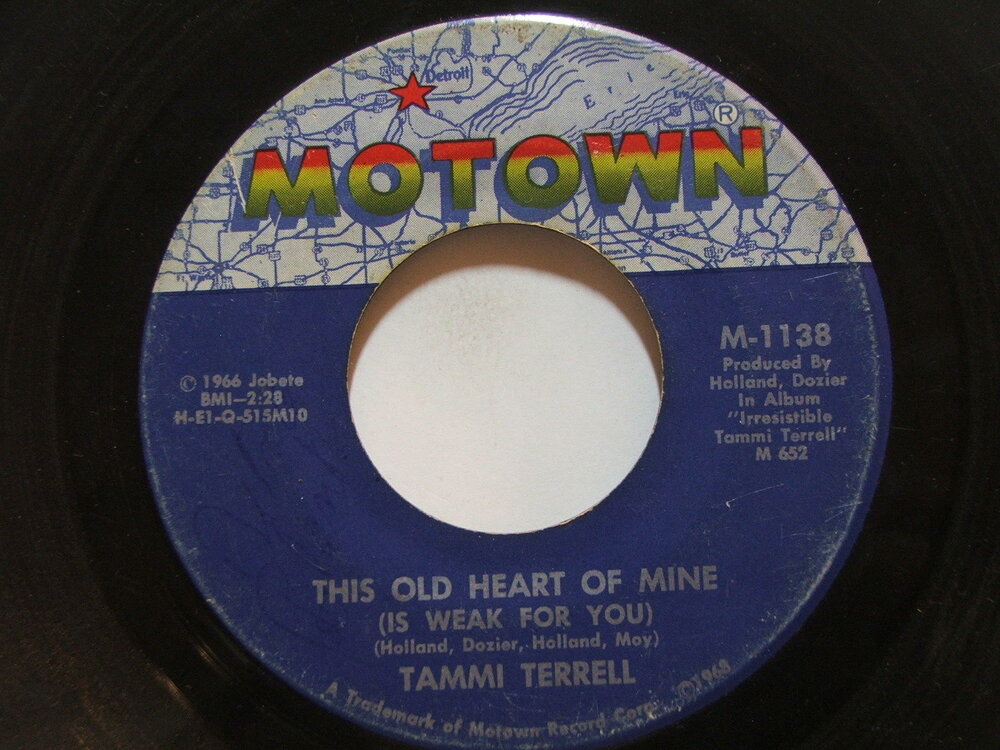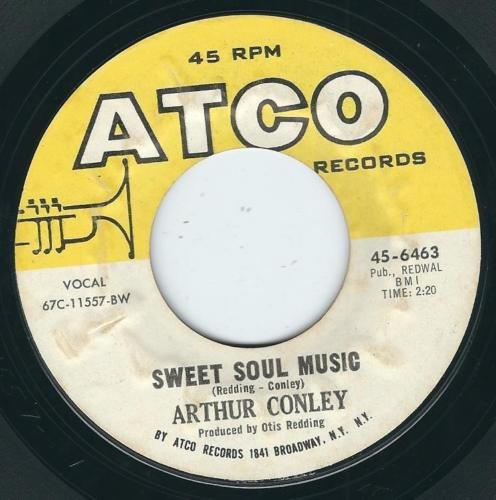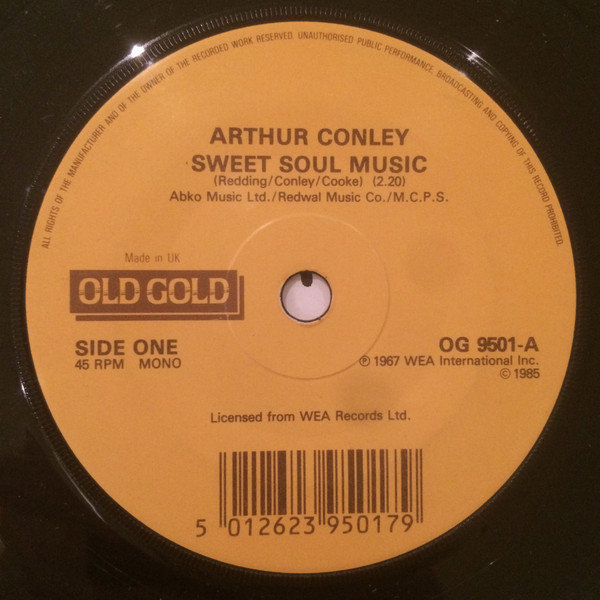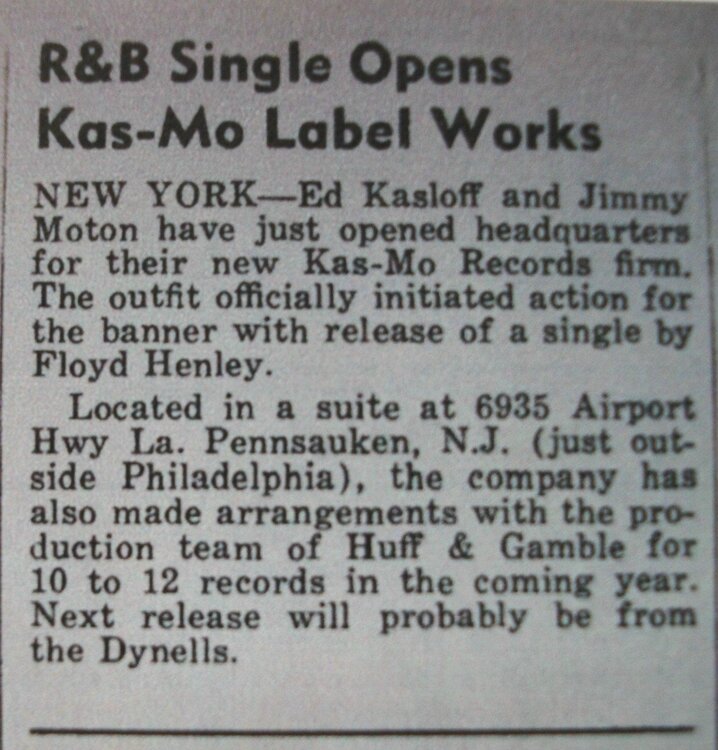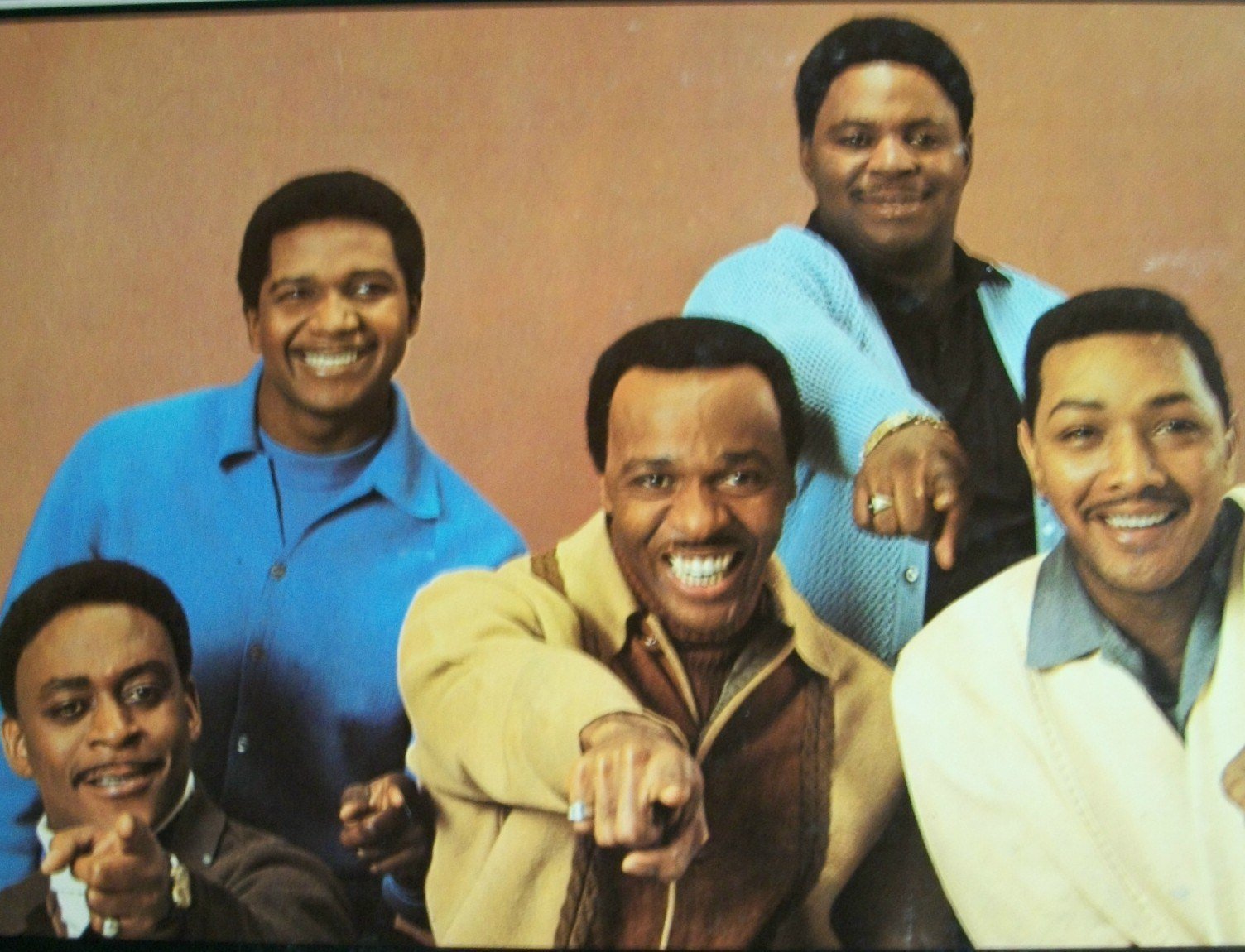
Everything posted by The Yank
-
What is your genre?
Here's another one-
-
Jerry O
According to a very brief bio on allmusic.com, Murray was born in St. Louis. He moved to Chicago in the late 50's where he was a disc jockey and promoter. He then moved to Detroit in the early 60's.
-
Obscure - unusual Foreign Releases
Italian Tamla- Motown- "Passo Le Mie..." is "A Place In The Sun". The flip side is "Il Sole E' Di Tutti" aka "Music Talk". Both sides are sung in Italian.
-
Dore strings Gone with the wind instrumental
The biggest difference is between the vocal versions- The Kent release is the one you've heard played out all these years. The Kent select release is the longer version with the extra verse that kicks in around 1:14-
-
The Supremes - Stoned Love (Motown Yesteryear)
For some unknown reason, Paul Riser arranged the long version but David Van De Pitte arranged the short version ?? Except for the long Spanish version (4:05) which reverts back to Van de Pitte.
-
The Supremes - Stoned Love (Motown Yesteryear)
-
The Supremes - Stoned Love (Motown Yesteryear)
The regular U.S. issue also credits David Van De Pitte as arranger. Not sure what's going on with the U.S. promo -
-
SOUL SOURCE RECORD CLUB 2018, 50 YEARS OF RARE SOUL
-
Postman's knock?
Haven't bought much lately but these three were recently delivered- Little Herman- "Gotta Keep Walking"/ "I'm Gonna Put The Hurt On You" - Arlen Mike and Bill- "Somebody's Gotta Go" - Movin' Up And I finally tracked down this unreleased Irma Thomas tune-
-
Label background overprinted and used by multiple labels
-
This old heart of mine (is weak for you) - 1965?
-
This old heart of mine (is weak for you) - 1965?
I don't know about DFTMC having access to all the files. Not sure what "assigned " means either- it could mean they wanted her to record it but that doesn't mean she went in the studio and actually did. The song was also considered for the Four Tops but they were on tour in Europe. Lamont Dozier remembers the Isleys were begging HDH for songs. I guess it all turned out well in the end .
-
This old heart of mine (is weak for you) - 1965?
According to "The Motown Singles- Vol 6- 1966", the track was recorded September 22, 1965 and assigned to Kim Weston. The Isleys vocals were overdubbed on December 1, 1965.
-
Different songs, but some of the lyrics are the same
Also adapted for "Sweet Soul Music" was the distinctive horn riff in the intro. It is said to have been "inspired" by this commercial
-
Different songs, but some of the lyrics are the same
First pressings of "Sweet Soul Music" only list Conley and Redding as the writers. A lawsuit was filed by J.W. Alexander for Sam's publishing company (Kags) and was settled with Conley and Redding giving Cooke and Kags publishing credit. Also part of the suit was the promise for Otis to record more of Sam's tunes. Strangely enough, the flip side of "Sweet Soul Music" was J.W. Alexander's "Let's Go Steady".
-
Different songs, but some of the lyrics are the same
Sam was first- "Yeah Man" is from 1964.
-
Songs That Use Same Arrangement /backing Track
-
Songs That Use Same Arrangement /backing Track
Two more from Pied Piper -
-
The Latin stuff that seems to be everywhere.
Georgie did seem to like his Latin music- his biggest hit (at least in the U.S.) was a cover of this-
-
Billy & Betty......Who are they.....Help please
Is that Edna Wright / Sandy Wynns next to Greg ??
-
Manships Auction ending 12th September
The Sensations/ Yvonne Baker 45 went for 365 pounds.
-
Drapels Volt 114?
I've only seen the Drapels on Volt #113 but.. in The Complete Stax/ Volt Singles 1959-1968 box set, Volt #113 is listed as Bobby Marchan and Volt #114 is listed as the Drapels "Wondering..." with a footnote saying "some copies of this single list it as #113".
-
Otis lee
Here's 3 recent sales - "perfect" condition - $752 USD - January, 2018 - "near mint" - $1100 USD- January, 2017 - "mint- - $1200 USD - May, 2013
-
Dynells on Vent and Larry Brown
-
Good Old Gold Label....help please
No need to apologize about the confusion- the Good Old Gold label was the label I was referring to when I said it was a bootleg label. The Goldies 45 label was a legitimate division of ABC/ Dunhill.





